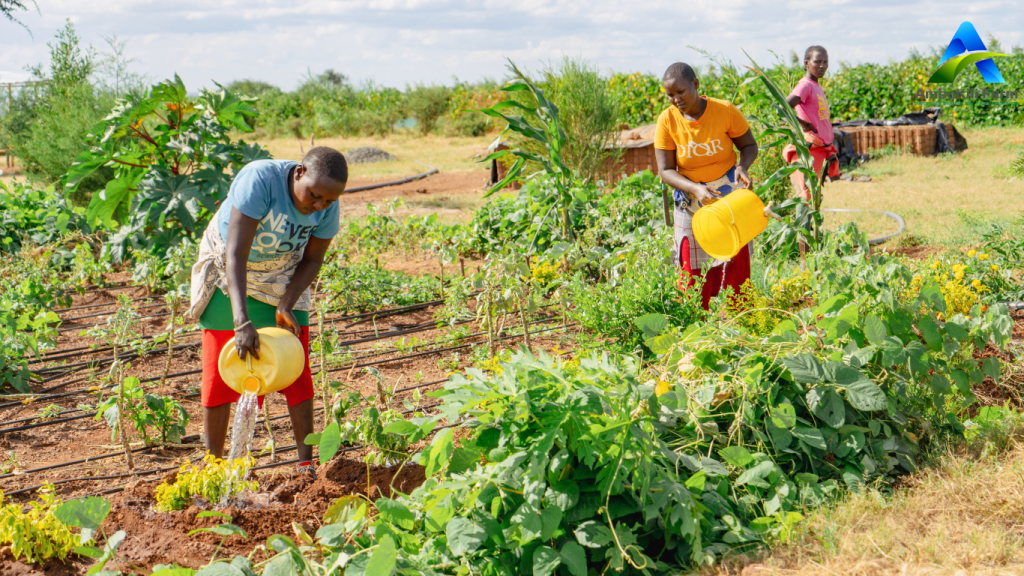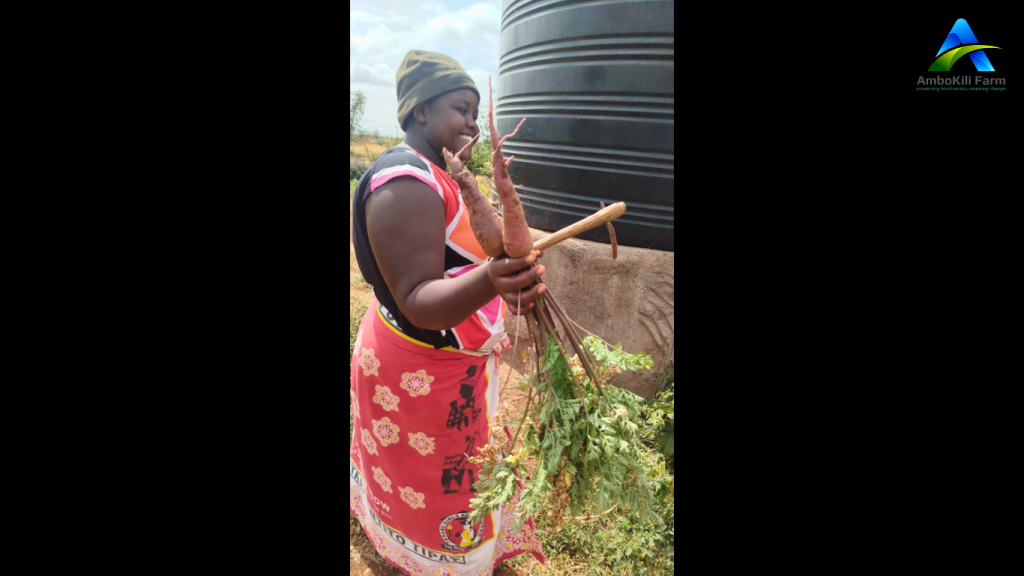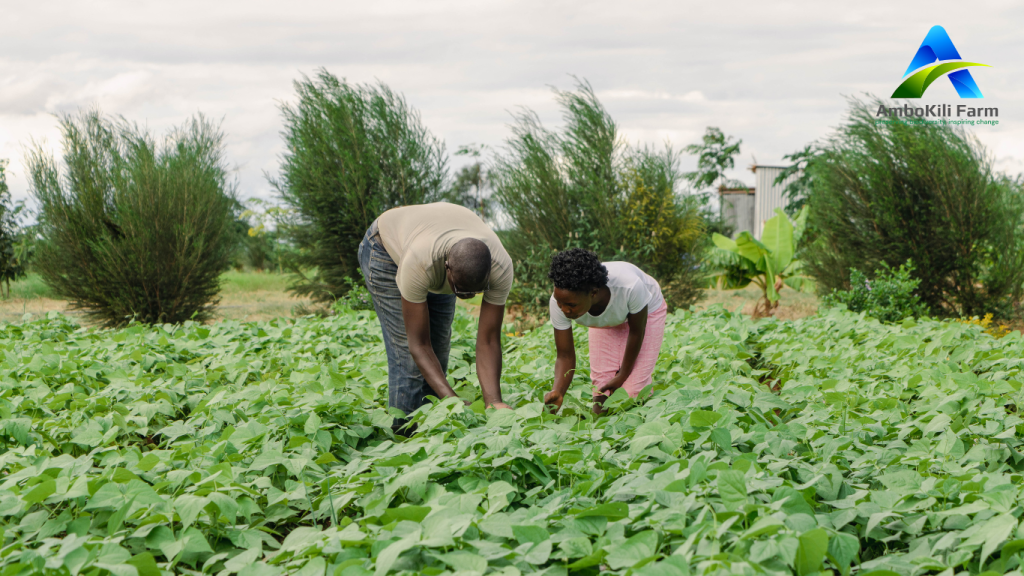
Sustainable agriculture is farming in such a way to protect the environment, aid and expand natural resources and make the best use of non-renewable resources.
As the world grapples with the dual challenges of climate change and population growth, it is increasingly evident that sustainable practices must be at the forefront of agricultural development. At the heart of this transformation lies a vital yet often underappreciated resource: youth. Engaging young people in sustainable agriculture is not only crucial for the sector’s growth but also essential for building a future where food systems are resilient, equitable, and environmentally sound.
Youth Engagement in Agriculture
Globally, youth make up a significant portion of the population. By 2050, the global population is projected to reach a staggering 9.7 billion (UN DESA, 2019.). According to the United Nations, there are 1.2 billion young people aged 15-24 worldwide, and this number is expected to continue rising.
Feeding this growing population necessitates a significant increase in food production – but not at the expense of our environment. This is where sustainable agriculture steps in. Sustainable agriculture prioritises practices that meet our current food needs while safeguarding the planet’s ability to sustain future generations. It’s a holistic approach that encompasses everything from soil health and water conservation to biodiversity and fair labour practices. Studies by FAO, show that sustainable methods can increase yields by 58% on average, particularly in resource-constrained environments. This is a game-changer, especially for developing nations with a burgeoning youth population.
However, the agricultural sector struggles to attract young people. In many regions, agriculture is often viewed as a low-status, labour-intensive field with limited economic returns. This perception, coupled with a lack of access to land, capital, and technology, has led to a decline in youth participation in farming. Apathy or Opportunity? While some may perceive a lack of youth interest in agriculture, the reality is more nuanced. A scoping review on Sustainability Youth Participation in Agriculture (2021) suggests that structural issues, lack of awareness about agricultural opportunities, and a disconnect.
Why Youth Engagement Matters
- The Ageing Farmer: The average farmer globally is aging. A 2018 FAO report indicates a significant decline in young people entering the agricultural workforce. In Africa, for example, where agriculture is a major economic driver, two-thirds of youth are unemployed or underemployed (Heifer International, 2023). Youth engagement ensures the continuity of agricultural practices across generations. With the global farming population aging—many farmers are over the age of 55—there is a pressing need to prepare the next generation to take over.
- Fresh Ideas, Fresh Solutions: Young people bring fresh perspectives and are more open to adopting innovative technologies and practices. Their familiarity with digital tools and social media can drive the dissemination of sustainable agricultural practices and enhance market access for smallholder farmers.
- Economic Empowerment: Engaging youth in sustainable agriculture creates much-needed economic opportunities, especially, in rural areas. In sub-Saharan Africa, for example, agriculture accounts for over 60% of employment. According to the World Bank, 60% of the world’s unemployed youth live in rural areas. Sustainable agriculture offers them a chance to build a secure and fulfilling livelihood while contributing to their communities’ well-being. By engaging youth in sustainable agriculture, we can address unemployment and create pathways to economic empowerment.
- Environmental Stewardship: Young people today are more environmentally conscious than previous generations. Engaging them in sustainable agriculture nurtures a sense of environmental stewardship, which is critical for the long-term health of our ecosystems.
Challenges to Youth Engagement in Sustainable Agriculture
- Perception of Agriculture: A concerning trend is emerging- Youth Exodus. Young people are increasingly migrating from rural areas to urban centres, lured by prospects of higher incomes and better opportunities. The Food and Agriculture Organization of the United Nations (FAO) reports that rural youth unemployment rates are significantly higher than their urban counterparts. This “youth exodus” creates a labour shortage in agriculture, jeopardising the very sector that holds the key to feeding future generations. Changing the perception of agriculture from a “last resort” job to a viable and rewarding career is crucial. This requires a concerted effort to highlight the opportunities in agriculture, particularly in areas like organic farming, agribusiness, and value-added products.
- Access to Resources: One of the biggest barriers to youth participation in agriculture is the lack of access to land, credit, and inputs. In many countries, land ownership laws and financial institutions do not favour young, inexperienced farmers.
- Education and Training: Many young people lack the skills and knowledge required for modern, sustainable farming. There is a need for targeted education and training programs that equip youth with the necessary technical and entrepreneurial skills.
How Ambokili Farm is Nurturing the Next Generation of Sustainable Farmers
There is a growing recognition that involving youth in agriculture, particularly in sustainable practices, is crucial for the sector’s revitalisation. Organisations like the Food and Agriculture Organization (FAO) and the International Fund for Agricultural Development (IFAD) are actively promoting youth engagement through various initiatives aimed at enhancing skills, access to resources, and opportunities in agriculture.
Here at Ambokili Farm, we’re passionate not just about growing healthy food, but about cultivating a thriving future for agriculture.
We understand the importance of youth in driving sustainable agricultural practices. That’s why we actively engage young people through:
- Educational Programs: We offer workshops and training sessions on sustainable agricultural practices, equipping youth with the knowledge and skills they need to thrive.
- Mentorship Opportunities: We offer internship opportunities at Ambokili Farm where we connect experts with aspiring young minds, fostering a valuable exchange of knowledge and experience.
- Community Involvement: We encourage youth participation in all our programmes, promoting ownership and building knowledge that’ll ensure longevity of our efforts in sustainable agriculture, environmental restoration and conservation, community development and biodiversity.
By inspiring, educating, and empowering young people, and creating employment opportunities, we’re not just about filling a labour gap; we’re harnessing the youth’s potential to transform the food system.
By investing in our youth, we invest in a sustainable future for our food systems and our environment.
The Role of Policy in Supporting Youth in Agriculture
To scale these efforts, supportive policies are essential. Governments and international organisations must prioritise youth in their agricultural policies, ensuring that they have access to land, credit, education, and markets. Additionally, investment in rural infrastructure, such as roads, irrigation, and digital connectivity, can make agriculture more attractive to young people.
One Young Mind at a Time
Youth engagement in sustainable agriculture is not just a nice-to-have; it is a necessity. The future of our food systems depends on the next generation’s willingness and ability to adopt and advance sustainable practices. At Ambokili Farm, we are committed to leading this charge, ensuring that young people in Kimana and beyond have the resources, skills, and opportunities they need to thrive in agriculture.
Are you a young person passionate about making a difference? We encourage you to explore the world of sustainable agriculture. Connect with organizations like Ambokili Farm, seek mentors, and start your journey toward a more sustainable future. Together, let’s cultivate a brighter tomorrow!





